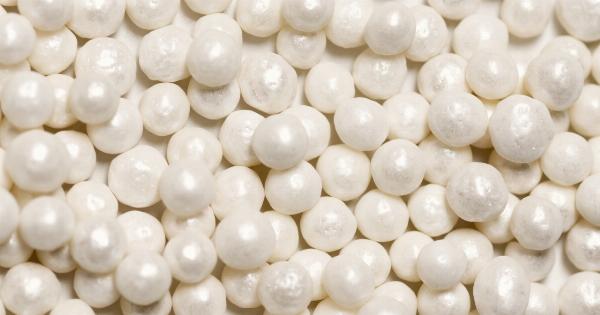Electrolytes are essential minerals found in the body that help maintain proper fluid balance and regulate various bodily functions.
Understanding the basics of electrolytes can help you maintain optimal health and performance, particularly during physical activity or illness.
What Are Electrolytes?
Electrolytes are minerals that carry an electrical charge when dissolved in water. They are involved in various bodily processes, including nerve function, muscle contractions, and fluid balance. Some common electrolytes include:.
- Sodium
- Potassium
- Calcium
- Magnesium
- Chloride
- Phosphate
These minerals are obtained from the foods and fluids we consume, and they are excreted through urine and sweat.
Why Are Electrolytes Important?
Electrolytes are critical for proper bodily function and performance. They help regulate fluid balance, which is essential for maintaining blood pressure, delivering nutrients and oxygen to cells, and removing waste products from the body.
Electrolytes also play a role in nerve function and muscle contractions. For example, sodium and potassium ions are essential for transmitting nerve impulses and triggering muscle contractions.
Calcium ions also play a role in muscle function, as well as bone health, blood clotting, and nerve function.
Additionally, electrolytes are important for maintaining proper pH balance in the body.
The pH level of your blood and other bodily fluids must be tightly regulated, as even a slight deviation can disrupt normal bodily functions and lead to health problems.
Electrolyte Imbalances
An imbalance of electrolytes can occur if there is an excess or deficiency of any of these minerals in the body. This can lead to a variety of symptoms and health problems, including:.
- Dehydration
- Muscle cramps
- Dizziness or lightheadedness
- Irregular heartbeat
- Nausea and vomiting
- Weakness or fatigue
Electrolytes and Physical Activity
During physical activity, the body loses electrolytes through sweat. This can lead to an imbalance of electrolytes if they are not replaced through proper hydration and nutrition.
It is important to stay hydrated before, during, and after physical activity to help replenish lost fluids and electrolytes.
Sports drinks and electrolyte supplements can also provide additional support for athletes and those engaging in strenuous activity.
Electrolytes and Illness
Certain illnesses, such as vomiting and diarrhea, can cause an imbalance of electrolytes. This is because these bodily fluids contain electrolytes, and significant loss can lead to dehydration and other complications.
If you are experiencing symptoms of an electrolyte imbalance, such as dehydration or muscle cramps, it is important to seek medical attention to address the underlying cause and restore proper electrolyte balance.
Electrolyte Sources
Electrolytes can be obtained through a variety of foods and beverages, including:.
- Sodium: table salt, processed foods, broth, soy sauce
- Potassium: bananas, sweet potatoes, spinach, avocado, yogurt
- Calcium: dairy products, leafy greens, fortified foods, tofu
- Magnesium: leafy greens, nuts and seeds, whole grains, beans and legumes
- Chloride: table salt, seaweed, olives, tomatoes
- Phosphate: meat, fish, dairy products, whole grains
Water is also a source of electrolytes, particularly if it is fortified or naturally rich in minerals. Sports drinks and electrolyte supplements are additional sources of these essential minerals.
Conclusion
Electrolytes are essential minerals that play a critical role in bodily function and performance. Understanding the basics of electrolytes can help you maintain optimal health and performance, particularly during physical activity or illness.




























